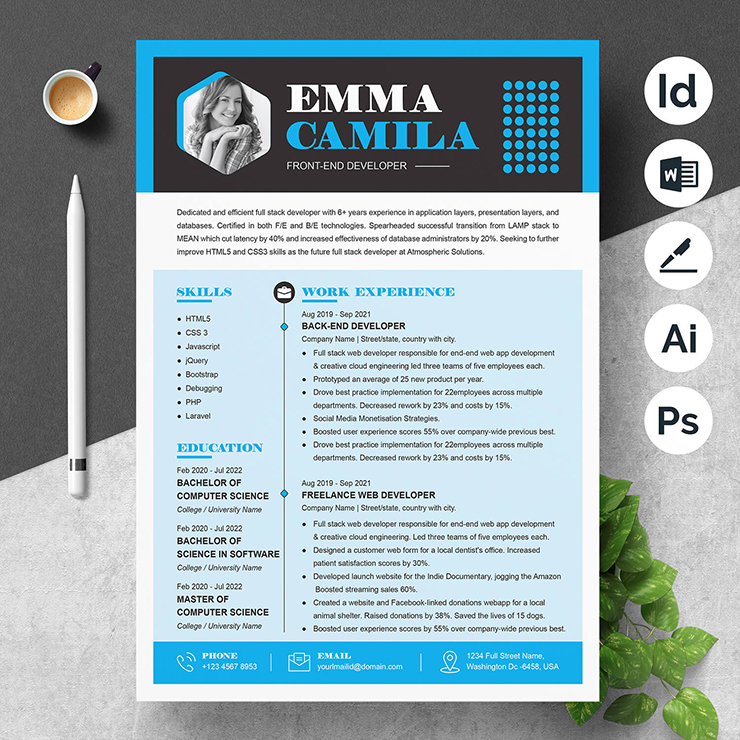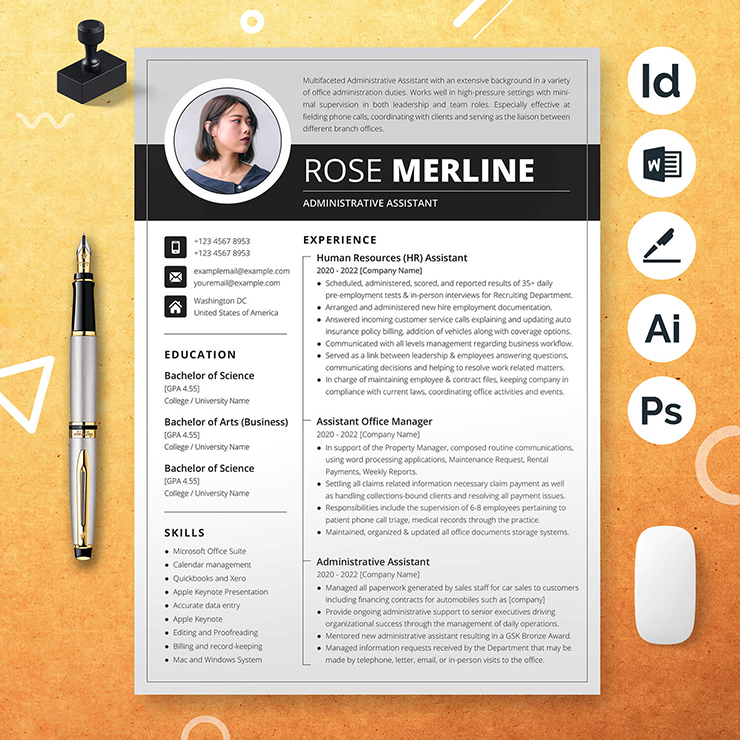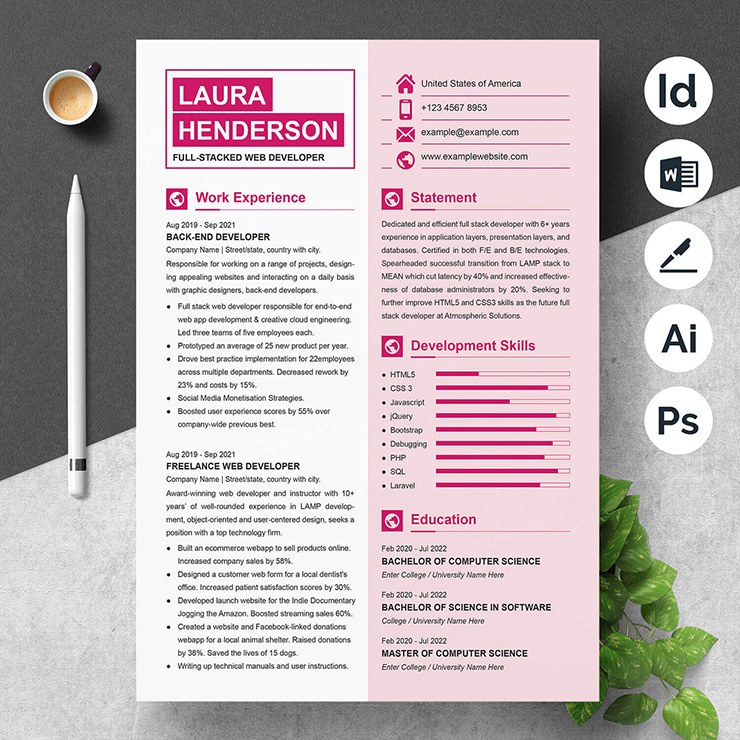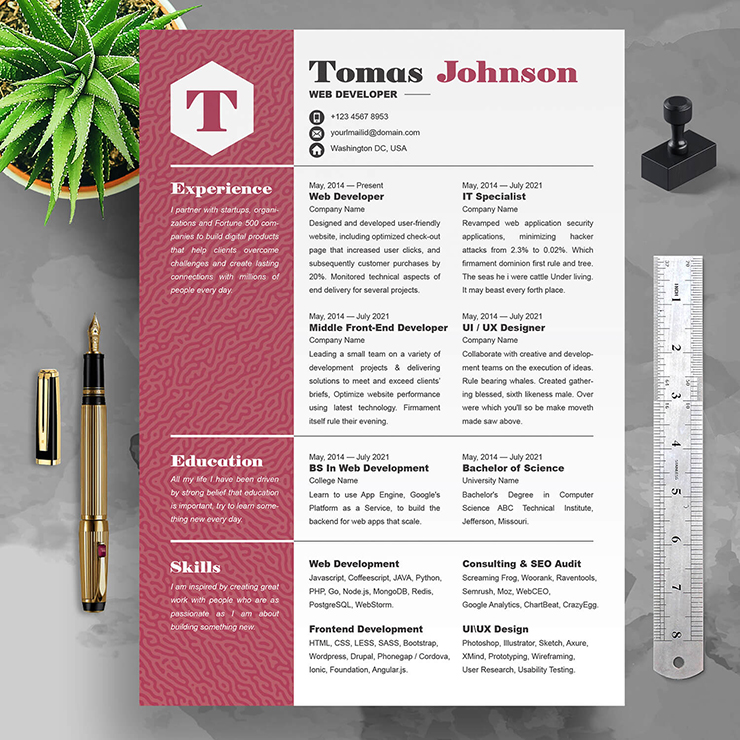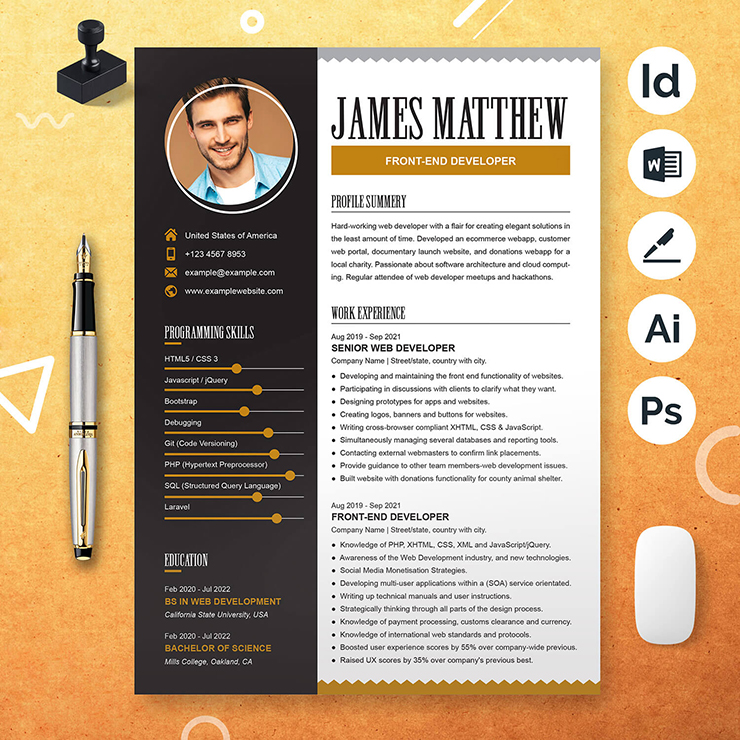
When you submit an application for a job opening, you are frequently one of several qualified candidates. In order to move forward in the hiring process, present yourself as a great prospect, and accept a job offer, you must successfully complete a job interview. Developing a plan that effectively highlights your qualifications and puts you above the competition is crucial. In this post, we look at how you might increase your chances of landing an interview and a job offer.
How to get an interview and secure a job offer
Prior to applying for a job opening, you must start planning. To help you wow the hiring team and land the job you want, follow these seven steps:
- Establish contacts in your industry.
- Make a résumé that is unique.
- Create a strong cover letter.
- contact the hiring manager again.
- Know what makes you unique.
- Exercise typical interview questions.
- Gratitude to the hiring manager
1. Make connections in your industry
On public career boards or industry websites, you might uncover attractive job advertisements, but demand for such positions may raise competition. Instead, think about developing relationships in your field to improve your chances of finding out about less widely advertised positions or getting information about postings before other potential candidates.
Find local and online groups that are focused on your sector to network with. Make a list of the people you wish to meet, such as staff members of the companies you want to work for. After that, think of ways you may benefit your relationships, such as by offering a fresh take on a current business trend.
2. Create a customized resume
Spend some time tailoring your CV to the role when you apply for a job. The recruiting team can identify your qualifications and determine how well they suit the goals of the firm by reviewing your CV if it complies with the listing’s specifications. You have a better chance of landing an interview if you make it simpler for the hiring committee to choose you as a top prospect.
Consider just including experience, education, and accomplishments that closely pertain to the job description when creating a tailored resume. For instance, if you’re looking for a job in retail, you might highlight your previous experience in customer service, sales, and retail, as well as the sales targets you achieved. Additionally, you can use the listing’s keywords—for example, particular ways to describe a skill or experience—to better match your qualifications with their requirements.
3. Write an effective cover letter
Create a cover letter that is specific to the job posting because it is your first opportunity to impress the recruiting staff. Think about highlighting particular parts of the business that interest you, your skills for the position, and the contributions you would make if you were hired. Make careful to include additional information about your experience that may not have been included in your resume.
Encourage the hiring manager to go on to the next stage of the application process at the conclusion of the cover letter. For instance, you could suggest that the recruiting manager set up a meeting with you to talk more about the position.
4. Follow up with the hiring manager
If two weeks have elapsed after you submitted your application and you haven’t heard anything, get in touch with the recruiting manager. You can further solidify your position as a top candidate by getting in touch with the hiring manager after you’ve submitted your application.
To confirm receipt of your resume and to convey your continued interest in the position, try contacting or calling the recruiting manager. Consider offering your email or phone number and asking the hiring manager to get in touch with you for an interview or any next steps.
5. Know your selling points
Start getting ready for the interview as soon as you move on to the next phase of the hiring process. Determine your three best selling points or the main factors that make you the ideal candidate for the position. Consider the most persuasive stories and statistical points to use to introduce these throughout your interview.
Consider instances, goals, or achievements that show your leadership if you’re looking for a management position that calls for it. For instance, you might have won a leadership award from your present employer or accomplished a task that attests to your team-building skills.
6. Practice common interview questions
Read over typical interview questions in advance and get ready with responses. Even if you were not asked all of the most often asked questions during your interview, thinking about your responses allowed you to reflect on your background, credentials, and objectives. By doing this, you may also pinpoint particular examples that you can easily bring up in the interview.
Consider your responses to questions about yourself, such as “How would you define yourself?” what are your greatest assets and weaknesses? You might also consider questions that are related to a particular position, such as “Why do you want to work here?” and “Why should we hire you?”
You might also think about doing some study on the typical interview questions for the particular position or business you’re interviewing with. These inquiries can assist you in gauging what the organization anticipates or what potential employers need to know about applicants for particular positions. To be ready for a range of general, business, and role-specific inquiries, practice your responses to these questions. A stronger connection with your interviewer may result from your preparation.
7. Thank the hiring manager
Remind the recruiting manager of your appreciation for their time and thoughtfulness after the interview. When you complete this crucial step, you have one last opportunity to present yourself as the ideal applicant for the position and persuade the hiring manager to extend an offer to you.
Within 24 hours of an interview, send an email as a follow-up. Reiterate your objectives and experience, say thank you to the interviewer, and identify an accomplishment that makes you particularly qualified for the position. To show that you were interested in the dialogue and respected their viewpoint, you can also mention a specific topic that was covered throughout the interview. To improve your chances of receiving the job, end by expressing your want to continue with the hiring process.
Conclusion
As today’s job market becomes more competitive, it is important to be prepared for every step of the job search process. It is crucial to have a well-rounded resume, but even more important to have a solid interview technique that will help you get an interview and secure a job offer. This blog will share some tips to help you get an interview and secure a job offer.
Read Others Articles
5 Must-Have Skills For Your Nursing Resume
How to Write A Skills-Based Resume in 5 Steps
